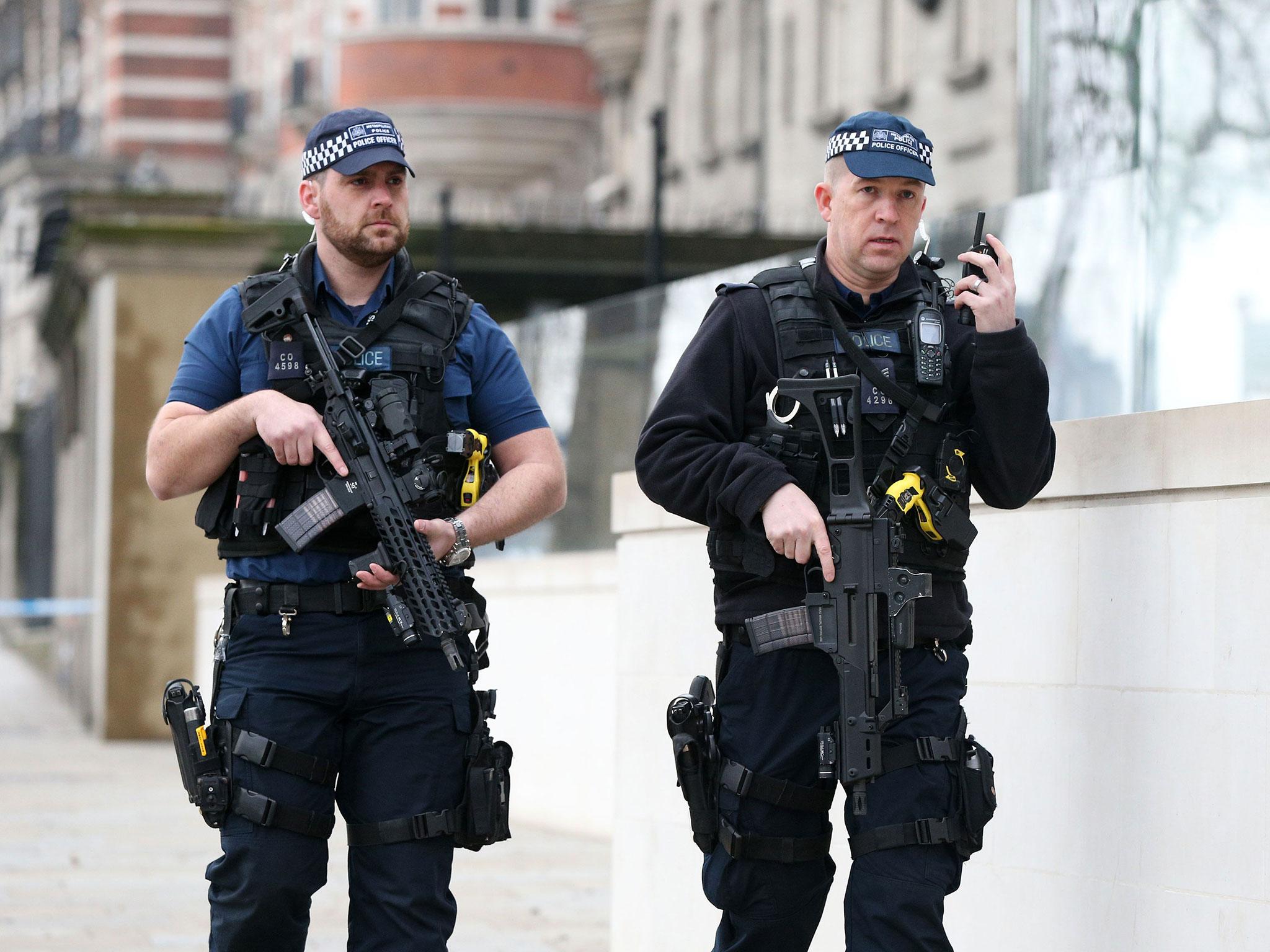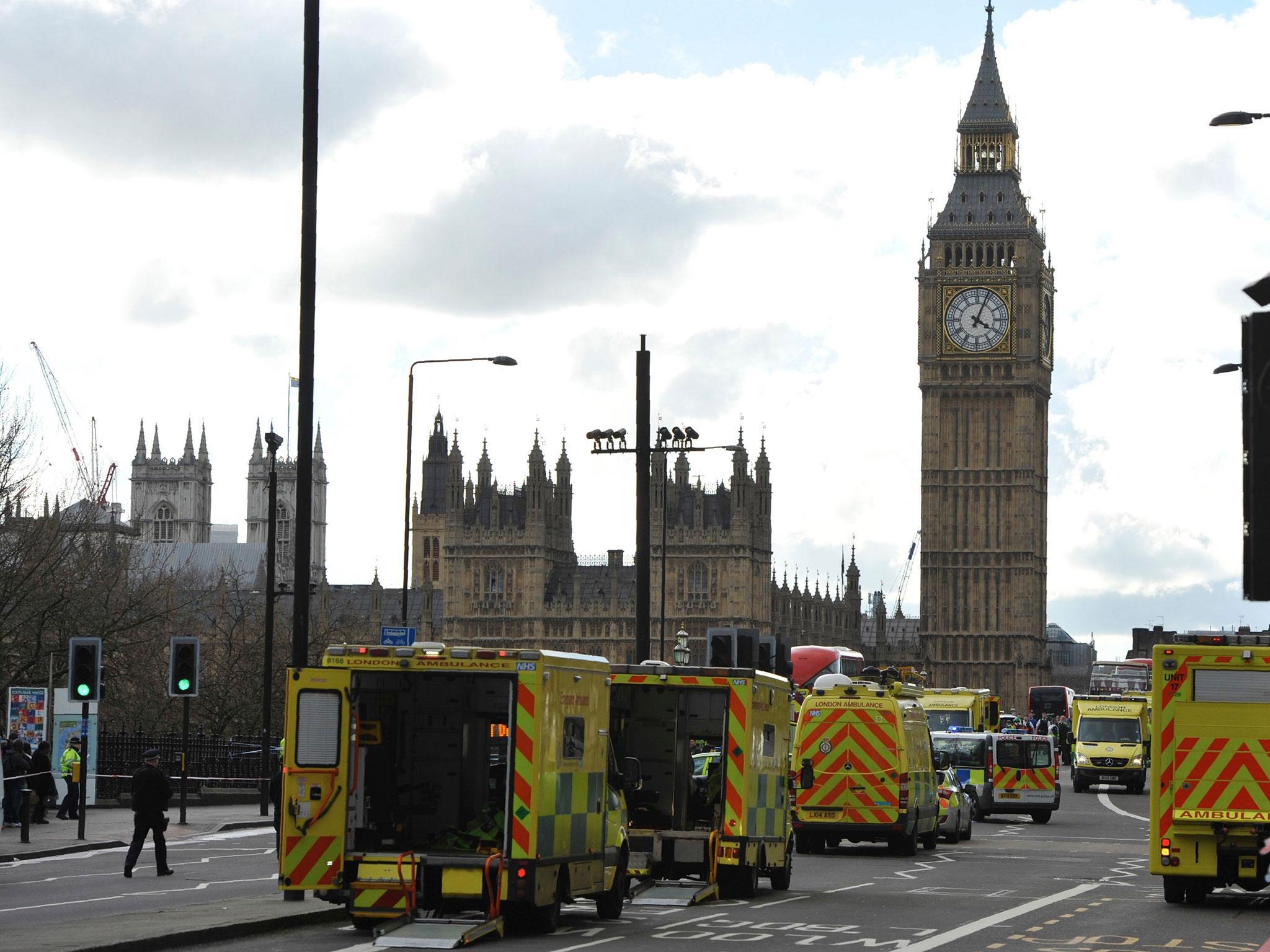Terrorists' families should be jailed if they fail to alert authorities, says Government's top terror adviser
Max Hill says Government should consider increasing sentences for some terror offences

Your support helps us to tell the story
From reproductive rights to climate change to Big Tech, The Independent is on the ground when the story is developing. Whether it's investigating the financials of Elon Musk's pro-Trump PAC or producing our latest documentary, 'The A Word', which shines a light on the American women fighting for reproductive rights, we know how important it is to parse out the facts from the messaging.
At such a critical moment in US history, we need reporters on the ground. Your donation allows us to keep sending journalists to speak to both sides of the story.
The Independent is trusted by Americans across the entire political spectrum. And unlike many other quality news outlets, we choose not to lock Americans out of our reporting and analysis with paywalls. We believe quality journalism should be available to everyone, paid for by those who can afford it.
Your support makes all the difference.Terrorists’ friends and families should be jailed for failing to alert authorities to possible attacks, the Government’s most senior adviser on terror laws has said.
Max Hill QC, the Independent Reviewer of Terrorism Legislation, said some existing powers are underused or carry sentences that are too light to work as an effective deterrent.
“With the benefit of experience and hindsight it may be the case that some offences have insufficient discretionary maximum sentences, which should be reviewed,” he told the Press Association.
Mr Hill, who has prosecuted in cases trialling members of the IRA, al-Qaeda and Isis, highlighted section 38B of the Terrorism Act 2000.
It makes it a criminal offence for anyone who believes someone might be planning an act of terrorism to “not disclose the information as soon as reasonably practicable”.
The law covers terror attacks as well as other offences including undergoing weapons training, leading a terrorist organisation, possessing or collecting material for terrorist purposes or passing on information about the armed forces.
A number of defendants who assisted the plotters behind the failed 21 July bombings in 2005 were convicted under the section, which carries a maximum sentence of five years.
Mr Hill, who prosecuted in the case, said: “It seems to me that that should be reviewed for a decision on whether that is actually sufficient.”

Longer sentences for some terror-related offences are already being considered in a review ordered by the Government in the wake of the atrocities in London and Manchester.
In the aftermath of the atrocities it emerged that several perpetrators were known to the security services and had been reported to authorities over extremist statements in the past.
But there have not yet been any UK prosecutions linked to the massacres in Westminster, Manchester and Finsbury Park.
The brother of the Manchester bomber, Salman Abedi, is to stand trial in Libya over accusations he supported the plot and bought materials for his device.
The parents of a suspected foreign fighter, “Jihadi” Jack Letts, have also been prosecuted for sending him money in Syria – they said the funds were for their young son’s living costs but police said it “could be used for terrorism purposes”.
Raffaello Pantucci, the director of international security studies at the Royal United Services Institute (RUSI), said that many terrorists viewed were part of radical families or friendship groups.
Some of the deadliest attacks in Europe, including the recent atrocities in Spain and Isis’s Brussels and Paris attacks, have been carried out by brothers and cousins, and many British citizens who joined the so-called Islamic State in Iraq and Syria left the UK with relatives or childhood friends.

Even in cases where men have launched attacks alone, investigations have revealed large social networks or online contacts that had aided their radicalisation.
“We’ve done research that shows that in more than half of cases of ‘lone wolves’, individuals have told someone or clearly telegraphed that intent, usually to family members,” Mr Pantucci told The Independent.
“But it can be difficult to tell statements indicating an attack is being planned from their normal patterns of behaviour.
“Some people don’t realise what they’re seeing. What may seem innocuous can turn into a problem.”
Mr Pantucci said mental health services and the education of teachers and other authorities to spot the signs of radicalisation was important.
He cautioned that powers to prosecute terrorists’ loved ones should be used “judiciously”, because “it because can be very difficult to prove [what they knew] and the danger is you look like a vindictive state”.
He added: “You can try to scare them into helping authorities but we must be careful diverting sources when there is such a diverse threat picture.”
A report carried out by Mr Hill’s office earlier this year found that some British Muslims felt “alienated” and vilified by the Prevent scheme and Government response to terror attacks.
The EU’s counter-terror coordinator previously said the UK was home to up to 25,000 Islamist extremists who could pose a threat – the known highest number in Europe.
Mr de Kerchove said 3,000 people were considered a direct threat by MI5 and 500 had been put under constant surveillance, with the wider pool of at least 20,000 former “subjects of interest” being kept under review.
Among those known to security services but not considered an imminent danger were the perpetrators of the three Isis-linked terror attacks that have killed 35 victims in Britain this year.
Westminster attacker Khalid Masood was described a “peripheral figure” by Theresa May, while Abedi was known to MI5 but not under active investigation and the ringleader of the London Bridge attack, Khuram Butt, was not thought to be a risk despite being a known member of Anjem Choudary’s banned network.
Mr Hill said the number of jihadis who “represent an individual risk” is much lower than the 25,000 figure.
“The fact that there has been such repeated success in disrupting plots and activity demonstrates that on almost every occasion the security services successfully go through the process of assessing what they are dealing with,” he added.
Six terror plots were foiled in the four months that saw the attacks in Westminster, Manchester, London Bridge and Finsbury Park, but the UK’s threat level remains at severe – meaning another attack remains “highly likely”.
Officials have warned that the threat from home-grown jihadis who are prevented from joining Isis in Syria and Iraq is increasing, with the group inciting global terror attacks to maintain momentum.
Mr Hill, who started in his role three weeks before Masood’s attack in March, said it was “terrible in every sense of the word” that plots had got through.
“We are seeing attacks planned or perpetrated by the use of a vehicle and a knife, as opposed to more ‘sophisticated’ attack,” he added.
“And we are seeing attacks that are inspired and put together in a comparatively short period of time, perhaps less evidence of long-term radicalisation, more evidence of individuals with the mindset to turn their mind to terrorism, inspired by online propaganda and little else.”

Security services have also been bracing for the return of Isis fighters driven out of the group’s waning territories in Syria and Iraq, although far lower numbers are now expected than the hundreds first hypothesised.
Of around 850 people who left the UK for the so-called Islamic State, around 350 have already returned and an estimated 200 have been killed.
“I don’t see the prospect of very large numbers of returning UK citizens but we are told that there may be some,” Mr Hill said.
“And that’s where, alongside the power to prosecute, the power to place individuals on of Terrorism Prevention and Investigation Measures (Tpims) should be considered.”
The controversial orders are used to put restrictions on suspects who cannot be deported or prosecuted, with six in place at the end of May.
In an exclusive interview with The Independent last month, Mr Hill argued that the Government should abolish any terror laws found to be “unnecessary” in the fight against extremists.
The barrister said the “sheer number” of dedicated terrorism offences sometimes overlapped with conventional crime, while some have become outdated or expanded beyond their initial scope.
Judges already have powers to increase sentences for crimes like murder and assault if there is evidence of a terrorist motive.
“In an ideal world we wouldn’t have specific terror offences,” Mr Hill added.
“We should not legislate in haste, we should not use the mantra of ‘something has to be done’ as an excuse for creating new laws.
“We should make use of what we have.”
Join our commenting forum
Join thought-provoking conversations, follow other Independent readers and see their replies
Comments